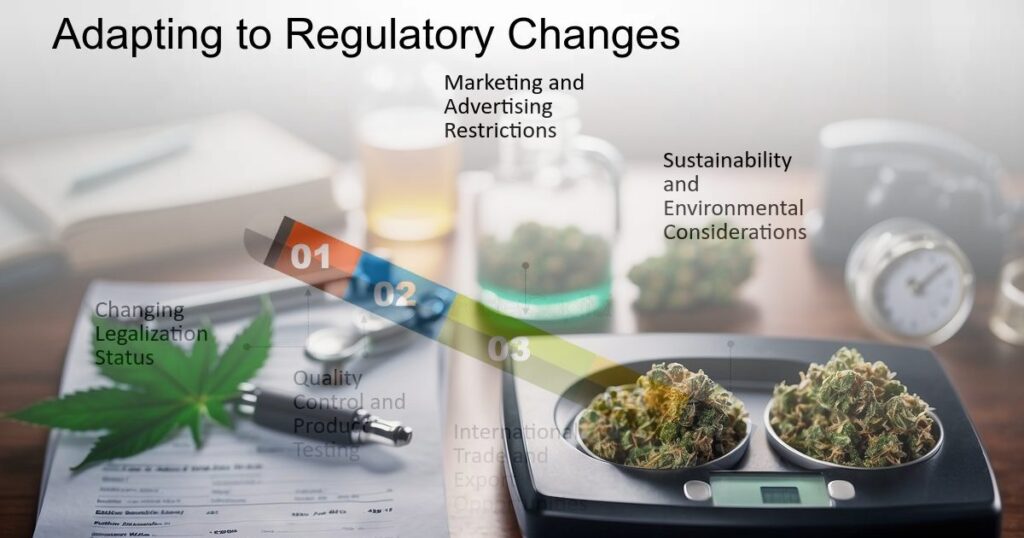Legal Considerations for Cannabis Vape Sellers: Navigating Regulatory Compliance
Navigating the legal landscape for selling cannabis vape products is complex and demands a thorough understanding of both federal and state laws. In the United States, the cannabis industry is undergoing continuous change, with varied regulations across different jurisdictions. As a cannabis vape seller, you must actively remain vigilant and compliant with the legal frameworks that govern the sale of these products. It’s also crucial to be well-versed in the state-specific regulations where you operate, as the legality of THC vape cartridges and devices differs widely from state to state.
In addition to understanding the regulatory environment, you must also ensure the safety and quality of your cannabis vape products. This includes adhering to rigorous product testing standards and transparent marketing practices. Furthermore, accurate labeling and avoiding unsubstantiated health claims are key to maintaining consumer trust and avoiding legal scrutiny. By prioritizing product safety and quality like YPSILOS products, you align your business with best practices supporting longevity in a rapidly expanding market.
Key Takeaways
- Remain up-to-date on the evolving state-specific cannabis regulations.
- Make sure you thoroughly test your cannabis vape products for safety and quality.
- Adhere to clear and honest marketing standards to maintain trust and compliance.
Regulatory Landscape for Cannabis Vape Products
The regulatory environment for cannabis vape products is complex. Also, it varies by jurisdiction, requiring careful attention to state and federal laws and compliance with licensing and business operating prerequisites.
State Compliance and Legal Variances
As a seller of cannabis vape products, you need to be aware that state regulations differ significantly. For instance, states like California and Colorado have established legal frameworks supporting the sale of these products, while others, such as Georgia and Mississippi, remain more restrictive. Important legal variances to monitor include emergency bans affecting product availability and the requirement to adhere to local licensing requirements, permits, and excise tax structures. Keeping abreast of each state’s regulatory changes is vital for your business to remain in good standing.
Federal Regulations and Legal Challenges
At the federal level, your cannabis vape products fall under the scrutiny of several agencies, including the FDA, DEA, and CDC. Federal regulations require compliance with acts such as the Prevent All Cigarette Trafficking (PACT) Act and the Jenkins Act, especially since vape products could be considered Electronic Nicotine Delivery Systems (ENDS), even when they do not contain nicotine. You must meet reporting requirements and navigate the overarching United States legal landscape diligently.
Licensing and Business Operating Requirements
Your business must secure appropriate licensing and understand variant fees and taxes for operation. Each state may have a different license process and require diverse criteria to maintain regulatory compliance. You must stay current on the legal landscape within states like Massachusetts, Oregon, Alaska, Arizona, Illinois, Maine, Michigan, Montana, and any other state where you intend to operate. Ensure you’re meeting business operations standards, which include accurate reporting, ethical marketing, and adherence to all state-specific cannabis product regulations.
Product Safety, Quality, and Marketing Standards
As a cannabis vape seller, upholding the highest product safety and quality is essential, and adhering to marketing regulations is not only good practice but a legal necessity.
Ensuring Product Quality and Consumer Safety
Product Testing: Ensuring rigorous testing for potency, purity, and the absence of harmful substances in your THC vape cartridges is critical. This means checking for heavy metals, residual solvents, pesticides, and other contaminants. Choose a reputable manufacturer and use state-licensed testing facilities to verify that products meet all safety standards.
Protecting Consumers: Maintain a transparent relationship with your consumers by providing clear information on the concentration and potency of THC, CBD, and any other cannabinoids in your vape products. Be proactive in addressing potential safety concerns and ensure all products, including vape pens and vaporizers, meet the necessary safety certifications.
Labeling, Marketing, and Sales Compliance
Compliance with Regulations: Familiarize yourself with the FDA regulations for cannabis-derived products, including marketing and sales restrictions. Label products accurately, including any necessary health warnings, to comply with these standards.
Age Verification and Advertising: Implement strict age verification processes, both online and in-store, to ensure you only sell to customers of legal age. Ensure that all advertising and labeling is truthful and does not target underage individuals. This includes precise product labeling and responsible packaging to prevent misuse.
Frequently Asked Questions
In navigating the complex landscape of cannabis vape sales, you must understand the specific legal obligations and regulations that apply to your business. These frequently asked questions will guide you through some essential legal considerations.
What specific state regulations must cannabis vape sellers in California adhere to?
In California, cannabis vape sellers must comply with the Medicinal and Adult-Use Cannabis Regulation and Safety Act (MAUCRSA). This includes requirements for child-resistant packaging, strict labeling with detailed health warnings, and potency limits. Ensure you’re also familiar with local municipal codes that may impose additional restrictions.
How do cannabis vape sellers navigate federal and state legal discrepancies in the USA?
Cannabis vape sellers must operate within their state’s regulations while being aware of the federal Controlled Substances Act, under which cannabis is still considered illegal. This includes understanding how to manage banking, advertising, and interstate commerce governed by federal laws. Maintain compliance with your state’s laws and seek legal counsel to navigate federal discrepancies.
What are the packaging and labeling requirements for cannabis vape products?
Packaging for cannabis vape products must be child-resistant and sometimes tamper-evident. Labeling must include specific information such as the product’s ingredients, THC content, health warnings, and whether the product contains nicotine or cannabis. Labels should not make any false or misleading health claims.
What licenses does one need to operate a cannabis vaporizer business?
To operate a cannabis vaporizer business, you must obtain a state-specific license, which may vary from one state to another. Businesses must obtain separate licenses for retail, manufacturing, cultivation, and distribution in many places. Always check with your state’s cannabis regulatory authority to ensure you have the correct licensing.
How do laws differ for the sale of psychoactive compounds like Delta 8 THC in various states?
The legality of Delta 8 THC can vary greatly by state. Some states have explicitly legalized it, others have banned it, and a few remain unclear. It’s important to review your state’s Controlled Substances Act and consult with legal counsel to ensure compliance.
What privacy considerations should cannabis vape sellers keep in mind regarding customer purchases?
As a cannabis vape seller, you must actively protect your customers’ privacy. This includes securing any personal information and transaction records. Adhere to state privacy laws and, if applicable, the General Data Protection Regulation (GDPR) for any online sales involving European Union residents.





